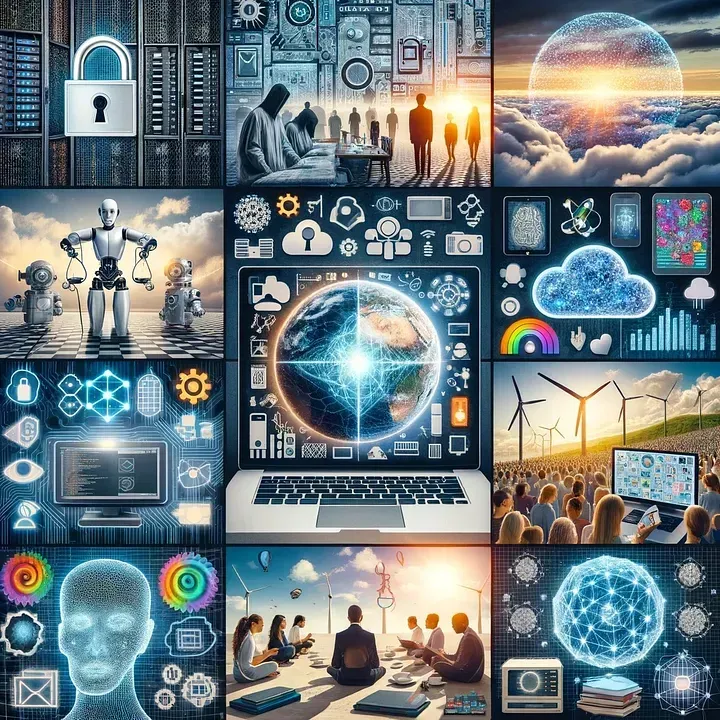The Democratization of Artificial Intelligence — Part 1

Artificial Intelligence (AI) is a beacon of modern technological marvels. Its early stages, marked by esoteric algorithms and exclusive access, are now evolving into a narrative familiar to the history of technology: democratization. AI’s trajectory from a research novelty to its current proliferation epitomizes the timeless pattern where groundbreaking innovations inevitably become more affordable and widespread.
Consider the early days of AI, where neural networks and machine learning models were primarily the domain of elite researchers and institutions. The computational resources required were staggering, and the expertise to understand or employ them was rarefied. Much like the daguerreotype’s early days in photography or the maiden flights in aviation, AI’s initial phases catered to a privileged few.
Yet, the winds of change are evident. Three driving forces are accelerating AI’s democratization:
The world of AI has seen a burgeoning open-source community. Tools like TensorFlow, PyTorch, and numerous others have become freely available. Such platforms allow burgeoning developers and researchers worldwide to experiment, innovate, and contribute, breaking the barriers of proprietary systems.
The rise of cloud platforms like AWS, Google Cloud, and Azure has made high-powered computing accessible to the masses. Startups to individuals can now rent computational power for AI tasks without the need for colossal infrastructural investments.
Online platforms, universities, and boot camps have democratized AI knowledge, offering beginner to expert-level courses. This dissemination of knowledge ensures that the next wave of AI innovations could emerge from anywhere, not just from elite institutions.
But what does this widespread availability of AI mean for society? First, it ensures that AI’s solutions — from healthcare diagnostics to sustainable energy management — become universally accessible. Local problems can find local AI-driven solutions tailored to specific needs and nuances.
Secondly, as AI tools become more user-friendly, individuals without a deep technical background can harness their power. We already see this with no-code and low-code AI solutions, where creating an AI-driven app or integrating an AI feature no longer requires a Ph.D. in computer science.
Lastly, the democratization of AI can lead to a more equitable global society. With more people having access to AI’s problem-solving prowess, historically marginalized communities can leverage it to address their unique challenges.
AI, in its essence, is not just algorithms and computations; it’s a tool for human empowerment. As with technologies of the past, its journey towards democratization is inevitable. At this transformative juncture, we can look forward to a future where AI is not just for the elite but a powerful ally for humanity.
Join Us Towards a Greater Understanding of AI
I hope you found insights and value in this post. If so, I invite you to become a more integral part of our community. By following us and sharing our content, you help spread awareness and foster a more informed and thoughtful conversation about the future of AI. Your voice matters, and I’m eager to hear your thoughts, questions, and suggestions on topics you’re curious about or wish to delve deeper into. Together, we can demystify AI, making it accessible and engaging for everyone. Let’s continue this journey towards a better understanding of AI. Please share your thoughts with me via email: marty@bearnetai.com, and don’t forget to follow and share BearNetAI with others who might also benefit. Your support makes all the difference.
Thank you for being a part of this fascinating journey.
BearNetAI. From Bytes to Insights. AI Simplified.
Categories: Technology and Society, History of Technology, Artificial Intelligence, Computer Science and Engineering, Ethics in Technology, Education and Learning, Innovation and Entrepreneurship, Global Issues
The following sources are cited as references used in research for this short essay:
Life 3.0: Being Human in the Age of Artificial Intelligence by Max Tegmark
AI Superpowers: China, Silicon Valley, and the New World Order by Kai-Fu Lee
The Master Algorithm: How the Quest for the Ultimate Learning Machine Will Remake Our World by Pedro Domingos
Deep Learning by Ian Goodfellow, Yoshua Bengio, and Aaron Courville
Democratizing AI to Benefit Everyone: Ensuring the Benefits of Artificial Intelligence Are Accessible to All by Virginia Dignum
Weapons of Math Destruction: How Big Data Increases Inequality and Threatens Democracy by Cathy O’Neil
Hello World: Being Human in the Age of Algorithms by Hannah Fry
© 2024 BearNetAI LLC